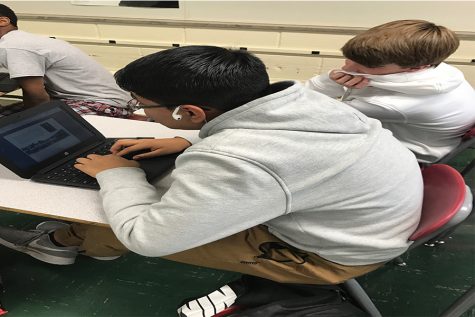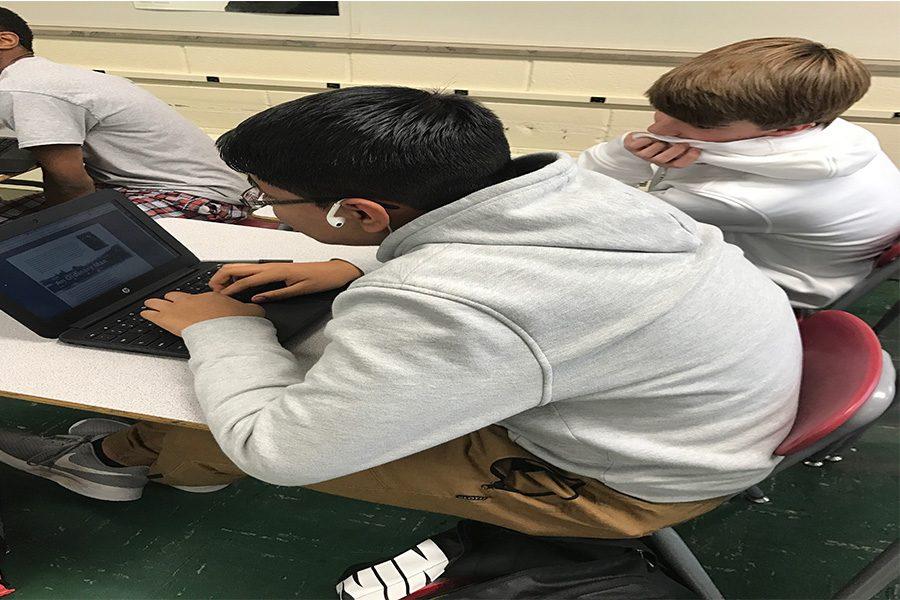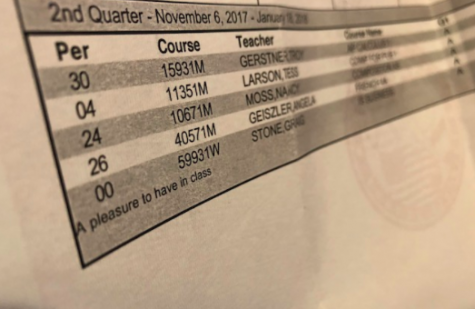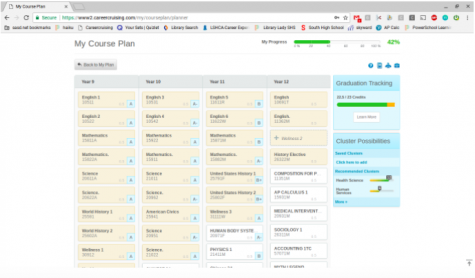Cheating and Its Friends
WHAT ARE FRIENDS FOR-Sophomores Haziel Perez and Nicolas Prahl demonstrate how cheating occurs. This is a common occurrence.
January 14, 2017
Imagine- you’re sitting in your math class. Test on desk, pencil in hand, yet you haven’t answered a single question in 20 minutes. You’re partly to blame, because you spent all night last night on social media rather than studying. Your classmate sitting next to you has her answers out right in front of you. Perfect opportunity to cheat. Except, is it the right thing to do?
Cheating is a way for students to get out of doing work. Whether it’s on a test or plagiarizing an assignment from the internet, it’s cheating. The amount of stress a student feels can also influence the decision to cheat. Students today juggles sports, jobs, school for seven hours a day, and a social life. Due to these daunting responsibilities, students may find it hard to study for a test or put 100% effort into an assignment. Sophomore Lesly Bibiano expressed her feelings towards cheating,
“Cheating has definitely affected my learning. Sometimes I’m so stressed from my classes and other responsibilities that I don’t retain the information properly. Cheating is a tool that students can use in these scenarios.”
Junior Lauren Firgens agreed with Bibiano in regards to the effects cheating has,
“It deprives the student of learning material. If you cheat, you’re only doing yourself a disservice because you’re not learning anything. You’re just getting the assignment done to get the assignment done.”
Freshman Vincent Lee went on to explain why he cheated,
“All in all, I just get lazy and I don’t want to do my homework or study for a test. I’m not proud of it, but it happens.”

Due to tight deadlines and challenging assignments, students may feel tempted to use their resources when not advised. One of the most popular resources utilized is the internet. With the introduction of Chromebooks into the SASD high schools in 2014, this has become increasingly popular. An example can be taking a quiz on your Chromebook while at the same time having a tab open with answers or even Google open. A student can easily execute the task without the teacher ever knowing. Sure, a teacher can walk around the room and keep a close eye on students. Some teachers even use a website called HiveSchool, which allows the teacher to look at the students’ computers from their own. However, if a student is truly motivated they will find a way to cheat. Senior Marcus McClellan elaborated on what he thinks motivates students to cheat,
“Disinterest in the assignment itself. It may not be a fun task to do so a student will want to rush to get it done. Then they can presume whatever they find interesting.”
Mr. Richard Mathews continued on by stating,
“I believe students feel the need to cheat because they are under pressure. Pressure from parents, pressure to maintain their GPA and grades, sometimes pressure from themselves. So students panic, and end up cheating.”
But still, the question remains. Is South’s current policy effective and actually working? The policy in which, when caught, the student will receive an automatic zero on said assignment, either minor/major referral (depending on the severity of the action), and possible suspension all depending on which department the action is carried out. Despite these strict punishments in place, students are still managing to get away with cheating. In a survey sent out the student body, 91.5% said that they have gotten away with cheating. Due to these alarming statistics, something needs to change.
With finals coming up, Redwings need to keep in mind what will benefit them in the long run. Mr. Mathews said it best,
“If you cannot be honest with yourself, then who can you be honest with?”










